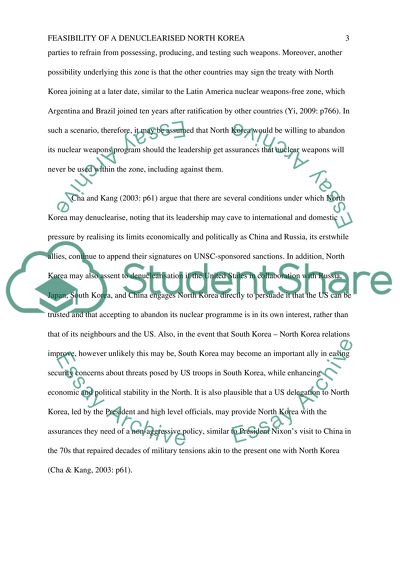Cite this document
(“Will North Korea abandon its nuclear weapons programme Evaluate the Essay - 1”, n.d.)
Will North Korea abandon its nuclear weapons programme Evaluate the Essay - 1. Retrieved from https://studentshare.org/social-science/1681019-will-north-korea-abandon-its-nuclear-weapons-programme-evaluate-the-arguments-for-and-against
Will North Korea abandon its nuclear weapons programme Evaluate the Essay - 1. Retrieved from https://studentshare.org/social-science/1681019-will-north-korea-abandon-its-nuclear-weapons-programme-evaluate-the-arguments-for-and-against
(Will North Korea Abandon Its Nuclear Weapons Programme Evaluate the Essay - 1)
Will North Korea Abandon Its Nuclear Weapons Programme Evaluate the Essay - 1. https://studentshare.org/social-science/1681019-will-north-korea-abandon-its-nuclear-weapons-programme-evaluate-the-arguments-for-and-against.
Will North Korea Abandon Its Nuclear Weapons Programme Evaluate the Essay - 1. https://studentshare.org/social-science/1681019-will-north-korea-abandon-its-nuclear-weapons-programme-evaluate-the-arguments-for-and-against.
“Will North Korea Abandon Its Nuclear Weapons Programme Evaluate the Essay - 1”, n.d. https://studentshare.org/social-science/1681019-will-north-korea-abandon-its-nuclear-weapons-programme-evaluate-the-arguments-for-and-against.


